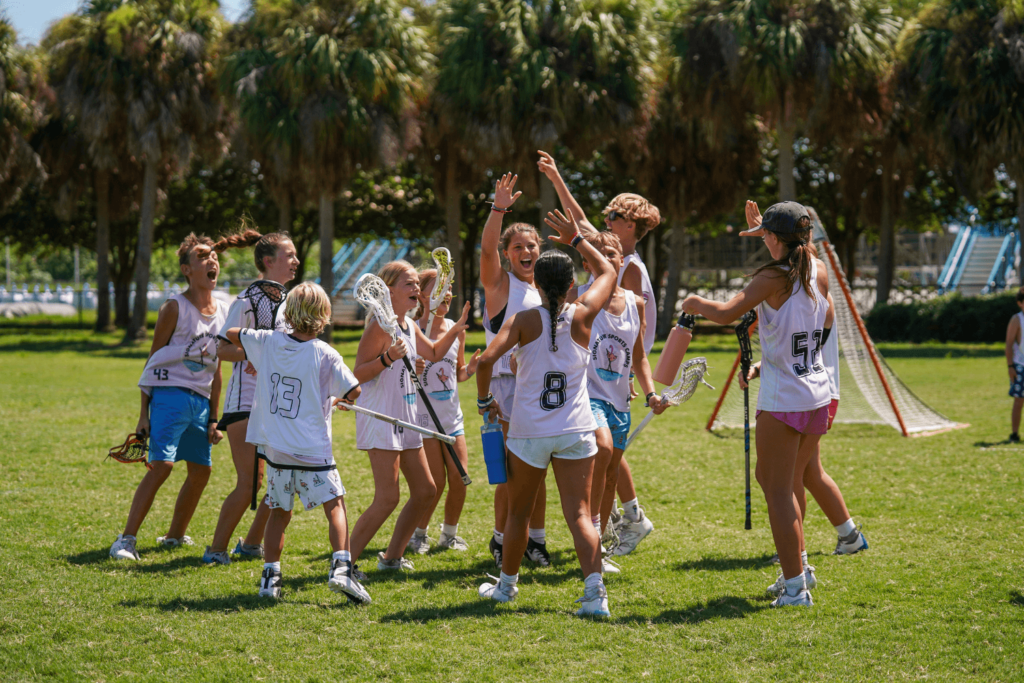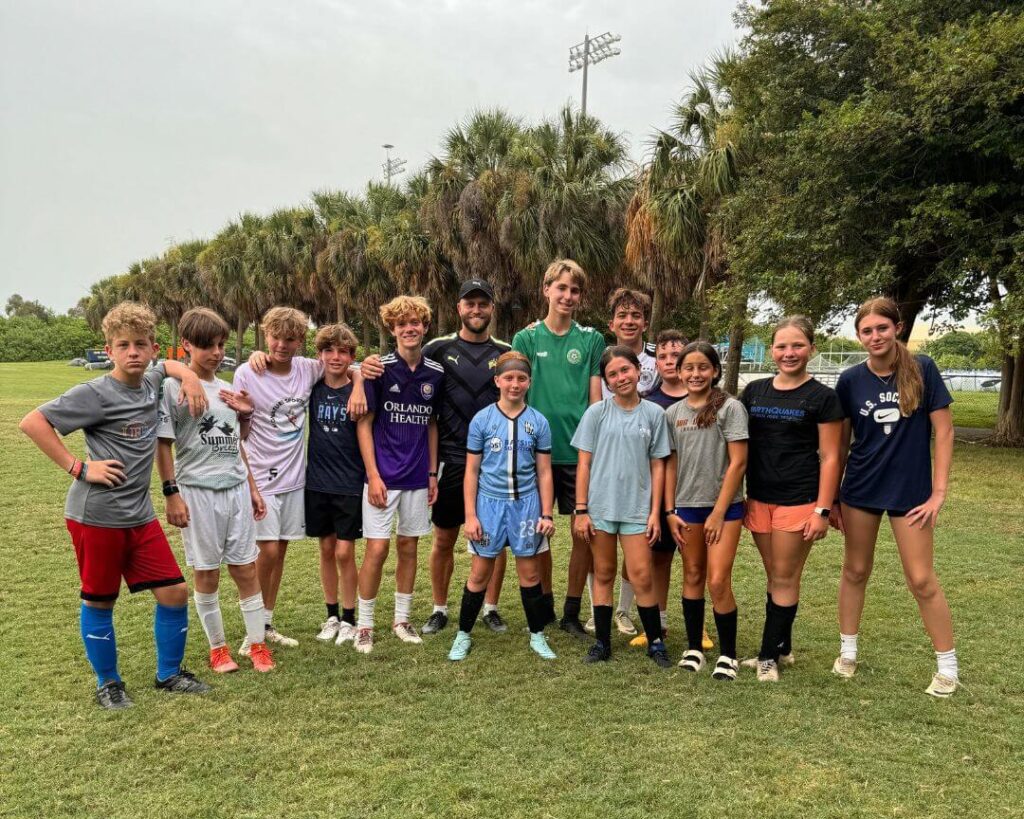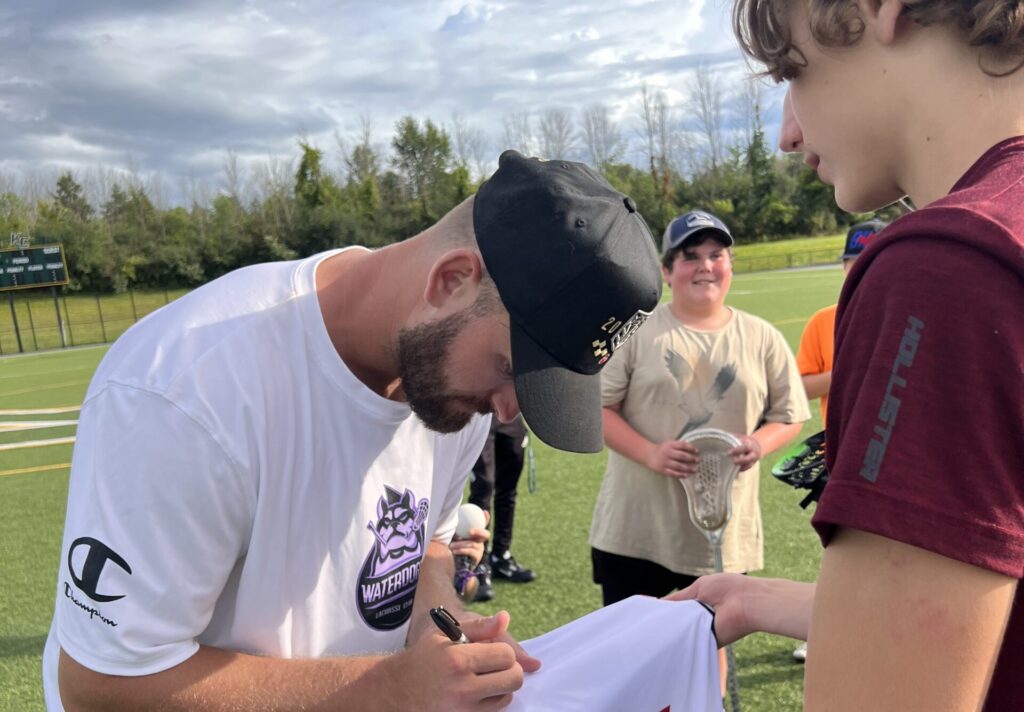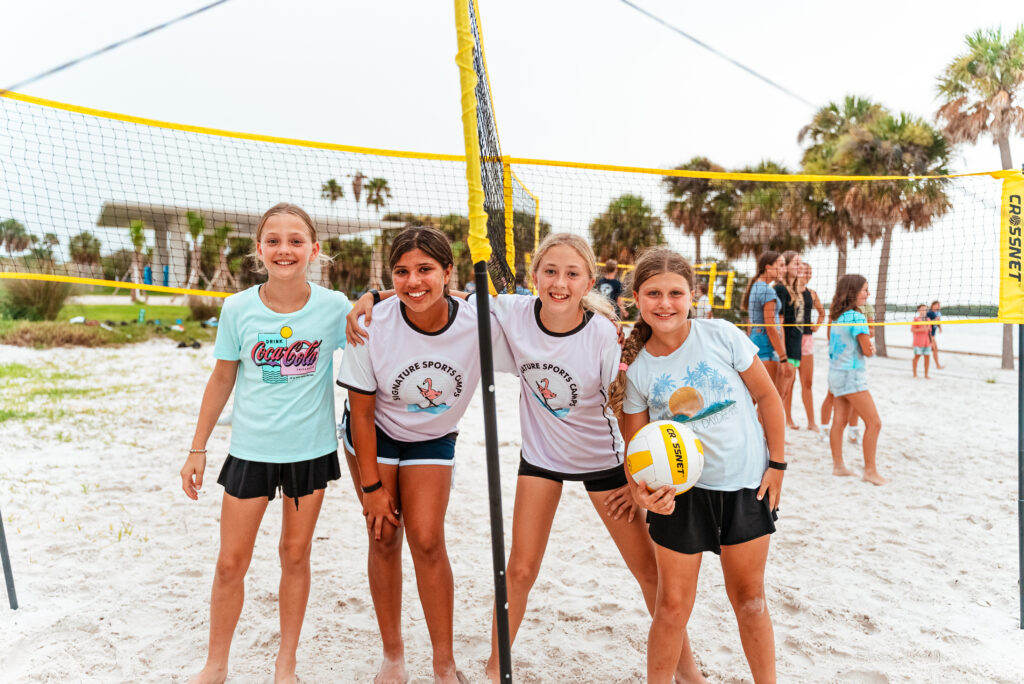Becoming a team player is one of the most important takeaways from a child’s youth sports journey. In the United States, only 6% of High School athletes participate in the NCAA, and out of NCAA athletes, less than 1% make it to the Professional Leagues. So if it’s pretty unlikely that your child is going to become a professional athlete, then what’s the point of the summer weekends spent on the field, the carpools, and the money spent on travel leagues and clinics? Let’s dive into it!
Becoming a Team Player
Team sports teach children and teens how to be team players at the most important part of their lives. Right when children go from elementary school to middle, facing puberty, and figuring out their identities, sports are there to guide them with life-long lessons. One of the most important lessons is how to be a team player. Over 80% of employers or hiring managers include some form of assessment for teamwork and collaboration during their hiring process. So it’s safe to say that being a team player is a skill that will make a difference in an athlete’s life for years to come.
What Qualities Make a Great Team Player?
Communication: The Key to Success
If you’re participating in a team sport, communication is absolutely critical for success. In fact, communication is one of the first things that coaches teach: communication on defense to “mark ball” and on offense to signal plays and ask for the ball. Going a layer further: think about the need for clear and direct communication with teammates looking for feedback or when a change needs to be made to win a game. Team sports provide a crash course in productive communication and teamwork to achieve a shared goal, advocating for yourself to coaches, and listening to both positive and critical feedback.
Reliability: The Backbone of Any Team
Team Sports are also an excellent platform for athletes to learn reliability, especially as it ties to an athlete’s effort, commitment, and accountability. When you’re on any team, each person is relying on your dedication to the shared goal and the role that you play to get there. Attendance and fulfilling your commitments to practices, workouts, and games are absolutely essential to the team’s success.
If your goalie is unreliable and doesn’t make it out to practices or games consistently, then that person probably won’t be your goalie for long! And that’s true for each position: a coach can’t very well go over a new play without the whole team there to learn it and give 100% effort to mastering the concept. There will be things that get in the way of practices: vacations, birthdays, and events with your friends, but by staying accountable to your teammates you are paving the way for a lifetime of reliability, quite possibly when the stakes are higher in your adult life.
Adaptability: Thriving Amid Change
I bet I know what you’re thinking: “Oh, adaptability, teams teach this through shifting a strategy mid-game when something isn’t working!”. While, yes that’s one example, but even bigger than that, have you thought about how athletes may be asked to play different roles based on the team’s needs? An athlete might be playing midfield their whole life, and yet when their teammate who is a defender gets injured, that middie just turned D. Team sports teach athletes how to be adaptive to achieve the team’s goal (a winning season, state championship, etc), and that pathway may look a little different than they thought. Good teammates can adapt to the team’s needs and put their individual goals to the side, to achieve the greater goal.
These are just a few examples of the qualities of a great team player and how these qualities show up in team sports on a day-to-day basis. There are MANY more life lessons that sports teach their young athletes.
Choosing the Right Team for Development
But one of the most important parts? Make sure you choose a team, camp, and coach who intentionally delivers these lessons in their rhetoric. If the coach is lax about commitments, isn’t productive with their communication (we all know what that looks like in a coach…), and is a poor role model, these patterns could be detrimental to your child’s development.
Lucky for you: Signature Sports Camps incorporates each of these principles in both the programming standards and player development models on the field. Ready to help your athlete grow into a great team player? Explore our camp locations to find a summer session near you—If you’re not local to any of our campuses, don’t worry! Check out our transportation options for added convenience!














